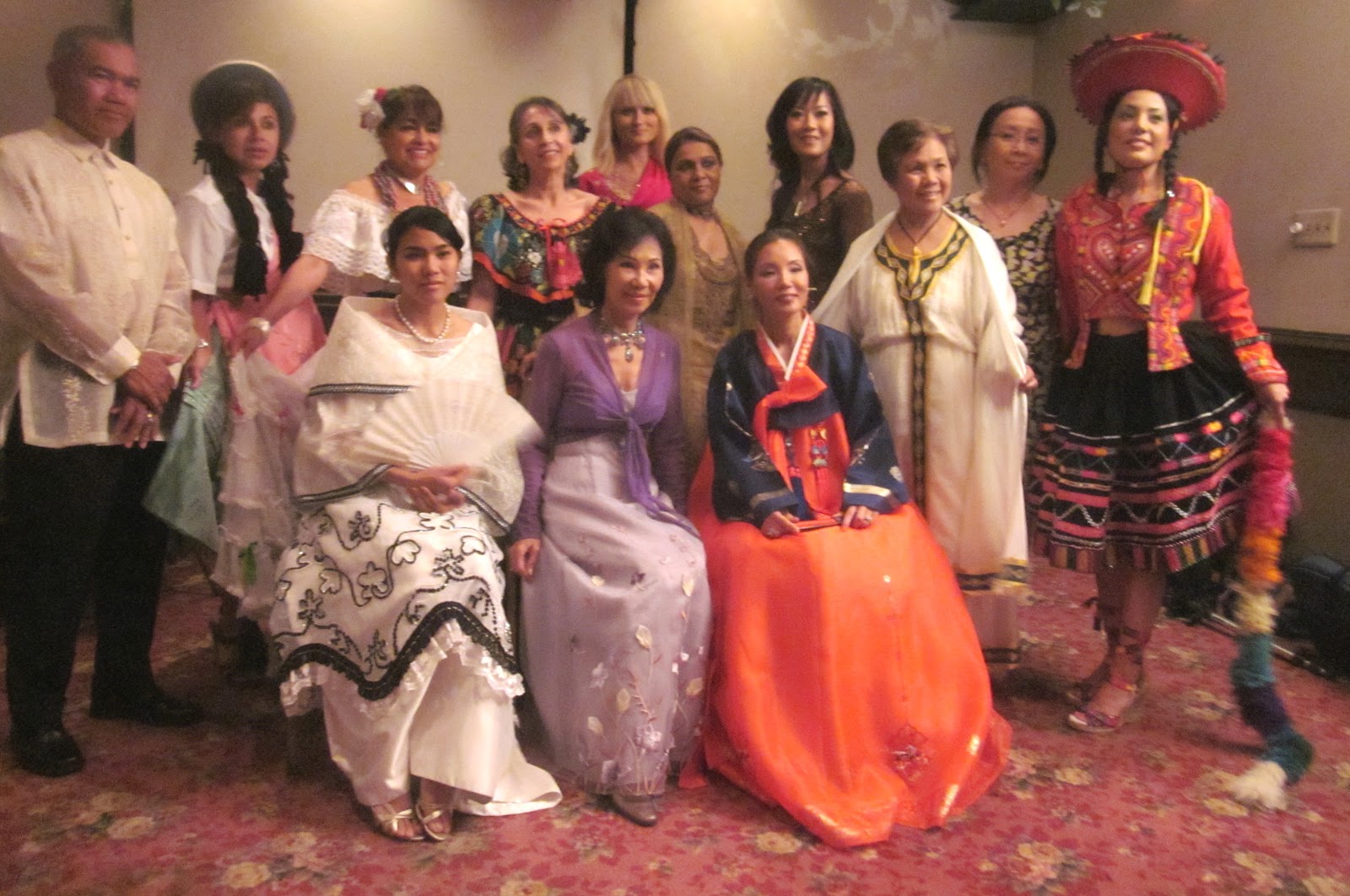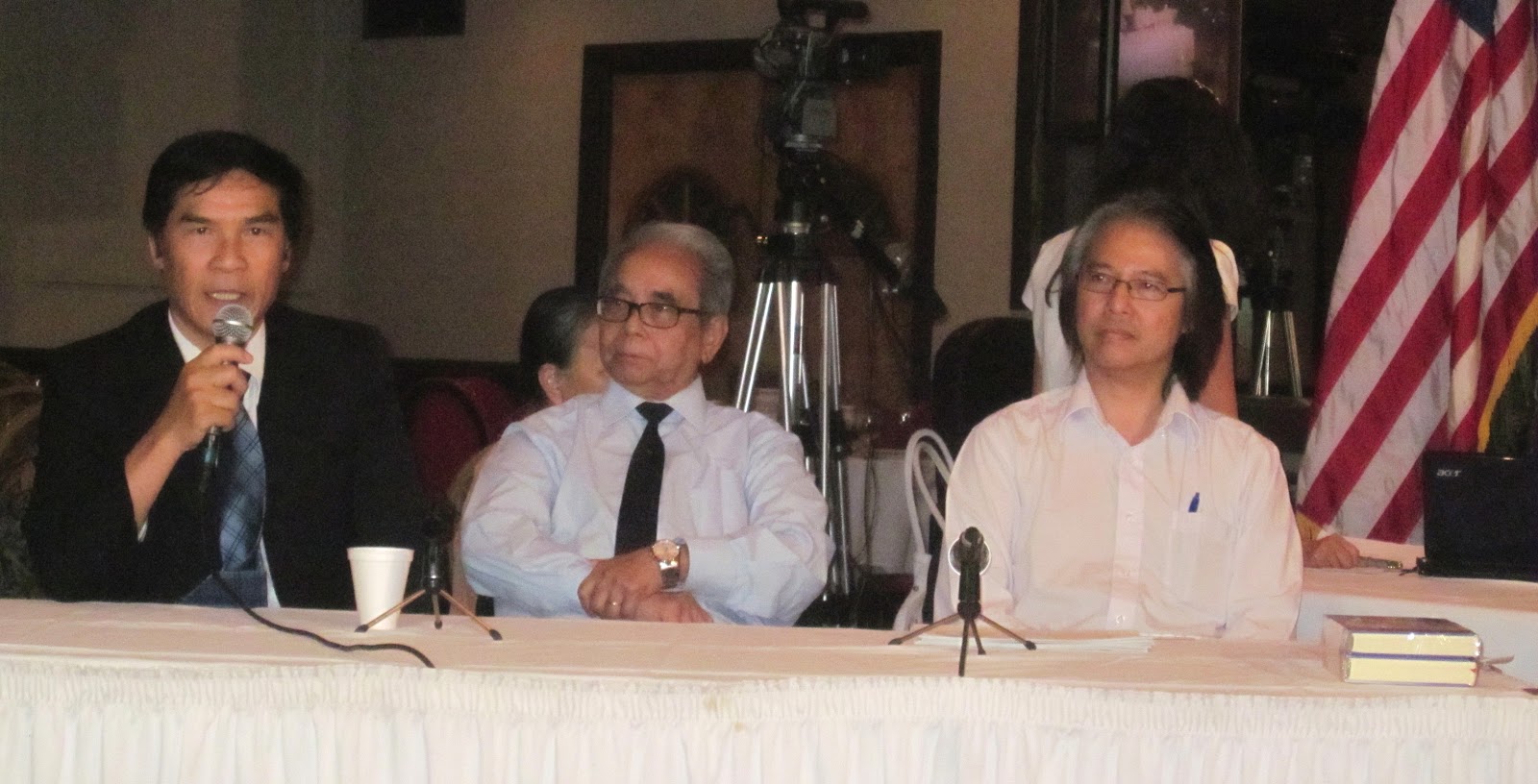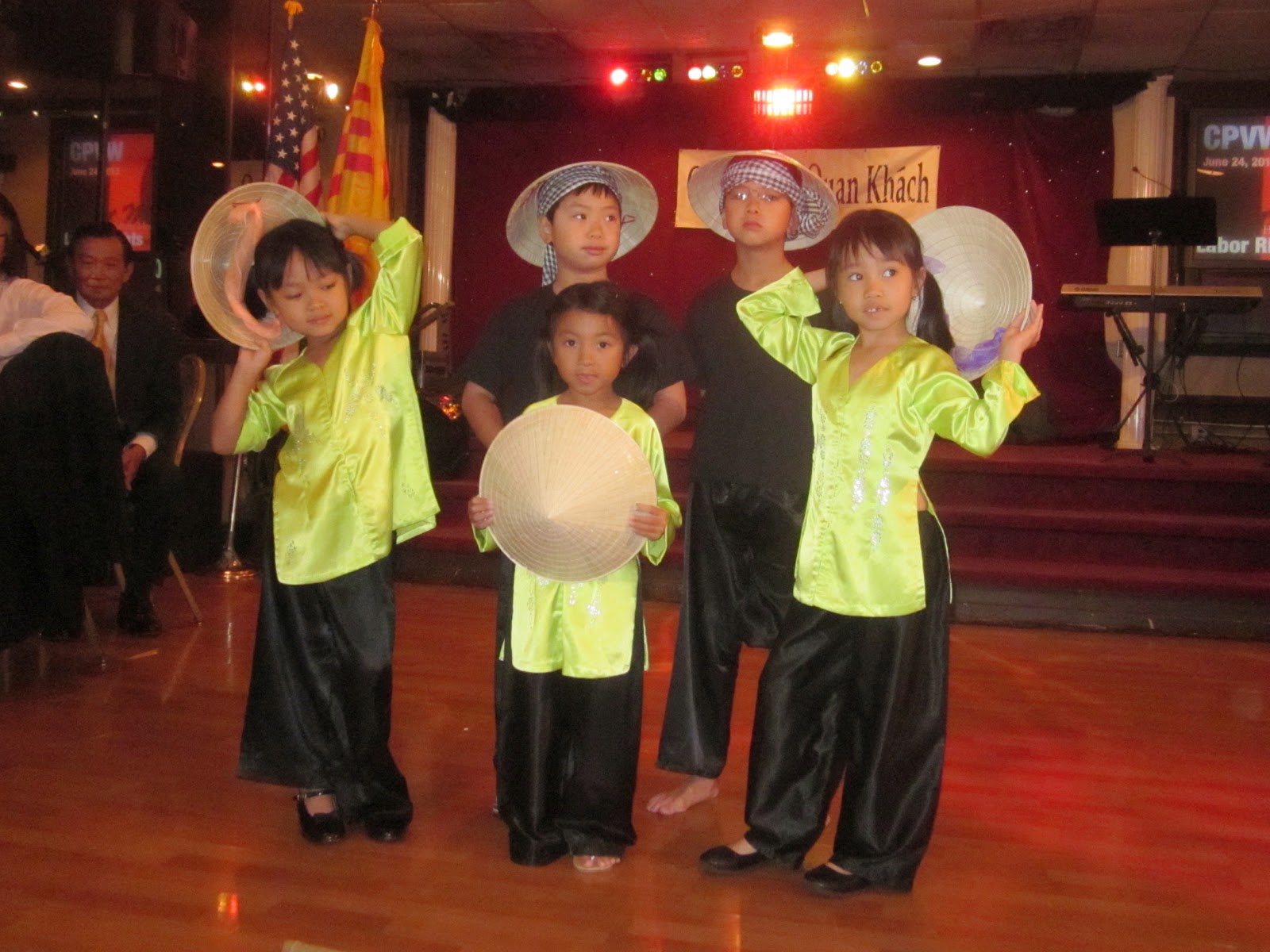Advocacy group draws attention to exploitation of Vietnamese workers
 |
| Jackie Bong-Wright (center in violet), the organizer of the banquet, surrounded by models showcasing international fashions. |
A gala banquet Sunday night at the Harvest Moon restaurant in Falls Church featured an incredible variety of entertainment—an international fashion show, Vietnamese singing stars, a lively tap dance by a former Ms. Virginia Senior America, and much more.
It was all for a very serious cause, however—to raise money for the Committee to Protect Vietnamese Workers (CPVW), an organization that helps Vietnamese workers caught up in human trafficking schemes— and the event was packed with members of the regional Vietnamese community and human rights advocates.
The CPVW held a conference before the banquet to shine a spotlight on the exploitation of Vietnamese workers and explore strategies for raising public awareness of the issue.
The organization also helps Vietnamese workers understand their rights, helps organize strikes in Vietnam where unions are illegal, publicizes the plight of labor leaders jailed in Vietnam, puts pressure on multinational corporations to improve working conditions and pay, and push for government action.
Among the many companies that exploit Vietnamese workers are Nike, Adidas, and McDonald’s toy manufacturer, Matrix.
The CPVW was formed in 2006 in Warsaw, Poland, to protect the rights of workers “exported” to Eastern Europe by the government of Vietnam. In Poland, the workers were terrorized by skinheads, said Nguyen Ngoc Bich, vice president of the CPVW and executive vice president of the National Congress of Vietnamese Americans.
 |
| From the left: Tran Ngoc Thanh, founder and immediate past president of CPVW; Nguyen Van Tanh, newly elected president of CPVW; and Doan Viet Tanh, a labor leader based in Australia. |
There are half a million Vietnamese “export workers” in 40 countries, Bich said. About 130,000 are in Malaysia, where the CPVW is concentrating much of its efforts.
They are lured to Malaysia under false pretenses, often sell everything they have for the opportunity to work abroad, and must work for years to repay loans to contractors. The women work 12 to 18-hour days in textile or electronics factories, while many of the men work in construction.
As many as eight people are forced to live in cramped metal containers so small there’s no room to stand up, reported a journalist who gave a detailed presentation at the conference. Others are packed into squalid, rat-infested warehouses. If they get sick or injured, they are fired and have no way of earning money to get back to Vietnam.
Because the employers keep the workers’ passports until their three-year work commitment is finished, they are trapped, said Doan Viet Trung, a CPVW leader based in Melbourne, Australia. About 400 to 500 Vietnamese workers are in prison in Malaysia simply for trying to travel without a passport, he said.
The CPVW has raised money for medical care for the workers and is trying to organize them to push for better conditions. As part of a longer-term solution, the group is trying to have them covered by the International Trade Union Confederation.
While the members of the CPVW are in the Washington area, they are lobbying the U.S. government to ensure that a trade agreement in the works with 11 Asian countries, the Trans-Pacific Partnership, will contain language aimed at protecting workers’ rights. They are also working with nongovernmental organizations like United Students Against Sweatshops, Amnesty International, and other groups that support human rights.
 |
| The younger generation performed, too. |

